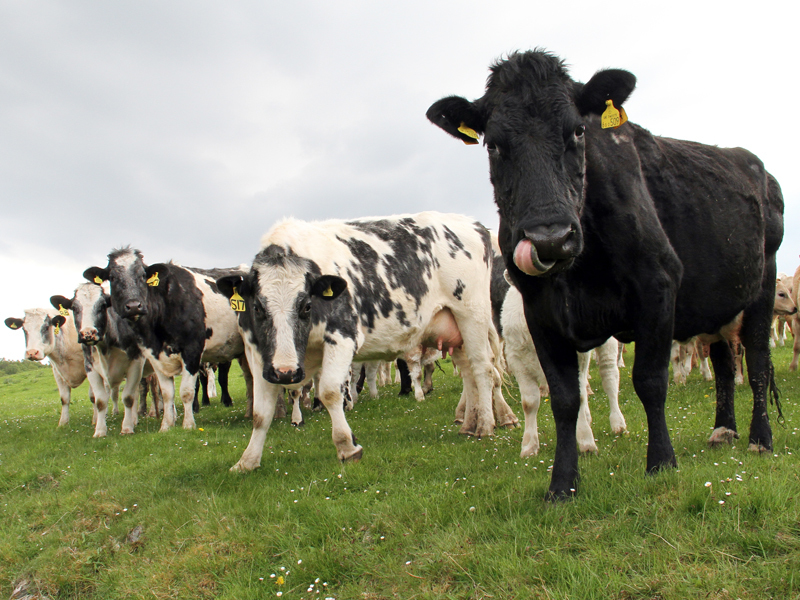The prime beef market is likely to remain challenging well into 2016, claims a leading industry economist.
According to Quality Meat Scotland’s head of economics services, Stuart Ashworth, there is unlikely to be a significant recovery in beef prices anytime soon.
He said the average deadweight price for a finished steer was £3.57/kg in the week ending December 9/10.
This is down 18p/kg on the same week last year when the average price was £3.75/kg, representing a reduction in prices of up to £70 for every animal sold.
Prices peaked in July at £3.75/kg and since then they have been falling fairly rapidly, added Mr Ashworth.
“Despite the fact that the number of animals in abattoirs is lower, there has been a growth in animal size,” said Mr Ashworth.
Throughput was 5% lower in November, but total UK beef production, including meat derived from cull cows, was 3% higher.
“Guys have been chasing revenue per head by putting weight on, but the problem with putting weight on is that it increases the amount of beef in the market and pushes more of the carcase out of the specification that’s in demand,” said Mr Ashworth.
Imports were down around 1% between January and October, while exports were down about 12.5% in the same period as a result of the strong Sterling.
This topped with increased carcase sizes, resulted in 4% more beef on the market in the first three quarters of 2015, compared with 2014.
Going into 2016, there were likely to be even more beef on the market due to an increase in stock numbers, warned Mr Ashworth.
BCMS data reveals that as of October 1, there were 2.3% more cattle aged 12-18 months, 7.4% more aged 6-12 months and 1.4% more under six months old.
Mr Ashworth said given the projected increase in cattle numbers and the reduction in exports, farmers would need to focus on reducing and meeting market specification to get improved returns.
“To manage supply of beef we will need to sell them [cattle] at lower weights,” he added.
“There is clear evidence from the abattoir sector that they will increasingly financially penalise heavier carcases.”
